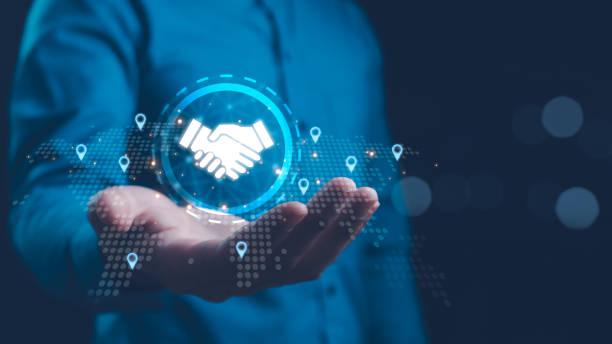Notifications

6 minutes, 28 seconds
-390 Views 0 Comments 0 Likes 0 Reviews

In the competitive world of business-to-business (B2B) commerce, retaining customers and building long-term relationships is just as crucial as acquiring new clients. Unlike business-to-consumer (B2C) models, where impulse purchases and brand preferences drive sales, B2B transactions involve higher stakes, long sales cycles, and a strong emphasis on trust and reliability. This is where b2b customer loyalty programs come into play, helping businesses foster meaningful relationships, increase retention, and drive sustainable growth.
B2b customer loyalty refers to the strategies and programs designed to encourage repeat business, strengthen partnerships, and create a mutually beneficial relationship between suppliers and clients. In contrast to B2C loyalty, where discounts and rewards drive engagement, B2B loyalty is built on value, service quality, and long-term commitment.
A well-structured loyalty program in the B2B space can lead to:
Increased customer retention
Higher customer lifetime value (CLV)
Strengthened brand trust and credibility
Improved customer satisfaction and engagement
Competitive differentiation in the market
Higher Retention, Higher Profits
Studies show that retaining existing customers is far more cost-effective than acquiring new ones. A loyalty-driven approach reduces churn and ensures consistent revenue streams.
Encourages Long-Term Partnerships
B2B relationships thrive on trust and reliability. Businesses that offer consistent value, personalized service, and exclusive benefits keep clients engaged for the long haul.
Increases Customer Lifetime Value
The longer a customer stays with your business, the more they contribute to overall profitability. Loyalty programs help maximize CLV by fostering deeper engagement.
Boosts Referral and Word-of-Mouth Marketing
Satisfied customers become brand advocates, referring other businesses to your services, which reduces marketing costs and improves credibility.
Strengthens Competitive Edge
With increasing competition, businesses need more than just great products to retain customers. A well-structured loyalty program gives companies an advantage over competitors.
Personalized Customer Experience
Understanding your clients’ needs and preferences allows you to tailor your services, making them feel valued. Offering customized pricing, exclusive services, or priority support enhances loyalty.
Incentivized Loyalty Programs
Unlike B2C rewards, B2B incentives can be more value-driven, such as:
Volume-based discounts
Exclusive access to new products/services
Custom business solutions
Early access to industry insights and trends
Seamless Communication and Support
Clear and transparent communication fosters trust. Offering dedicated account managers, 24/7 support, and proactive problem-solving keeps customers satisfied.
Value-Added Services
Businesses that go beyond selling products and offer additional value—like training, consultation, or data insights—create deeper engagement.
Loyalty Tiers and Exclusive Benefits
Implementing a tiered loyalty system where customers unlock higher benefits as they continue doing business encourages repeat transactions.
Leveraging Technology for Customer Insights
Using CRM tools and AI-driven analytics helps businesses understand customer behavior, predict needs, and personalize interactions effectively.
Recognition and Appreciation
A simple appreciation email, anniversary discounts, or exclusive event invitations make customers feel recognized and valued.
Point-Based Loyalty Program
Clients earn points for purchases, referrals, or engagement, redeemable for discounts or exclusive perks.
Tiered Loyalty Program
Customers reach different loyalty levels based on spending or commitment, unlocking increasing rewards.
Rebate and Discount Programs
Offering cashback, bulk purchase discounts, or volume-based incentives encourages long-term contracts.
Exclusive Membership Programs
Premium customers get access to specialized services, priority support, and advanced industry insights.
Referral and Advocacy Programs
Rewarding customers who refer new businesses strengthens partnerships and builds trust.
To ensure effectiveness, businesses should track key performance indicators (KPIs), including:
Customer Retention Rate (CRR): Percentage of customers retained over time
Customer Lifetime Value (CLV): The total revenue a customer generates during their relationship with the business
Net Promoter Score (NPS): Measures customer satisfaction and likelihood of referral
Repeat Purchase Rate: Frequency of repeat orders
Engagement Metrics: Email open rates, loyalty program participation, and support interactions
AI-Driven Personalization
AI-powered analytics will enable businesses to deliver hyper-personalized experiences, improving customer engagement.
Blockchain-Based Loyalty Programs
Blockchain technology will enhance transparency and security in reward transactions.
Sustainability-Driven Loyalty
More businesses will offer eco-friendly incentives, such as rewards for sustainable business practices.
Integration with Digital Ecosystems
Seamless integration with e-commerce platforms, CRM tools, and automation software will enhance loyalty program efficiency.
Omnichannel Engagement
Businesses will leverage multiple touchpoints, including social media, mobile apps, and in-person interactions, to keep customers engaged.
Building b2b customer loyalty requires more than just offering competitive pricing; it involves creating lasting relationships through trust, value, and engagement. A well-structured loyalty program strengthens business partnerships, increases retention, and drives long-term growth.
By implementing smart loyalty strategies, businesses can differentiate themselves, maximize customer lifetime value, and create a strong foundation for sustained success in the competitive B2B marketplace.
